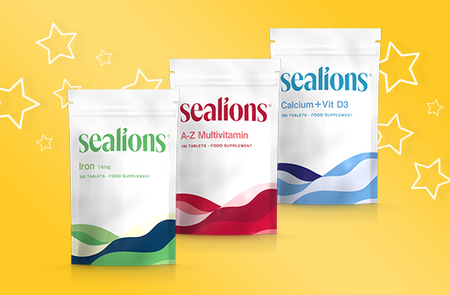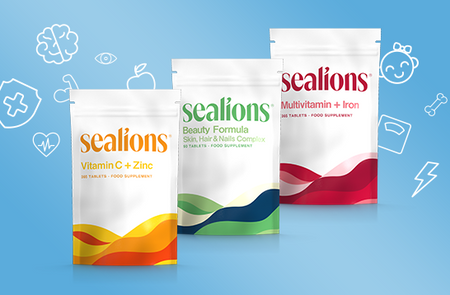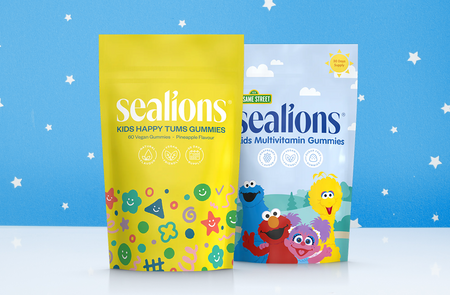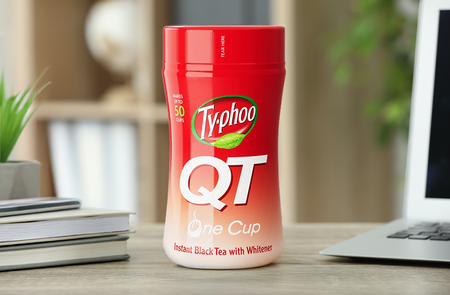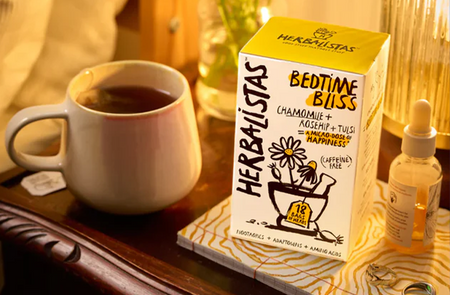
The Seasonal Surge: Why Vitamins Become Autumn and Winter Allies
As the vibrant colours of summer gradually give way to the golden hues of autumn and the chilly embrace of winter, a noticeable shift occurs in our daily routines and health-conscious choices. One notable trend during these colder months is the increased consumption of vitamins and supplements. This seasonal surge in vitamin intake is multifaceted, rooted in a desire to bolster our immune systems and ward off the common illnesses that tend to thrive in the colder seasons.
September usually heralds the arrival of flu season and a higher incidence of colds – with many people already being called to their GP’s to get the yearly flu jab. Individuals start to take stock and take proactive measures to protect their health. Shorter daylight hours and reduced exposure to sunlight during these months can lead to lower vitamin D levels, which play a crucial role in immune function. This deficiency, compounded by the reluctance to spend extended periods outdoors in the cold, drives many to seek vitamin D supplements.
Additionally, the abundance of seasonal fruits and vegetables rich in essential vitamins, such as vitamin C found in citrus fruits, may dwindle, leading individuals to opt for supplements to maintain their immune defences. As a result, the autumn and winter months see a surge in vitamin consumption as people seek to fortify their bodies against the common ailments that threaten a spell in bed, feeling sorry for themselves. This article explores the various reasons behind this trend and delves into the science of why vitamins become our trusted allies during the colder seasons.
Ashwagandha Gummies
So, what is Ashwagandha? It’s an ancient herb used throughout the centuries in Ayurveda as a form of holistic medicine native to India. This small evergreen shrub is found in Southeast Asia and India and is often called “Indian ginseng”. Extracts from the Ashwagandha root reportedly have neuroprotective and anti-inflammatory properties and are traditionally associated with treating anxiety and stress.
During the autumn and winter months, as stress levels rise due to changes in routine and the onset of colder weather, some people turn to supplements like Ashwagandha to fortify their well-being. Renowned for its stress-management properties (1), it can aid the body in adapting to increased stress by regulating the cortisol hormone.
This adaptogenic herb becomes a valuable ally when stress tends to spike. Moreover, as the risk of colds and flu heightens with the arrival of colder weather, ashwagandha's potential to modulate the immune system (2) offers additional support to individuals seeking to bolster their defences. The shorter daylight hours during this season can also impact mood, potentially leading to mood changes or symptoms of seasonal affective disorder (SAD). In response, Ashwagandha's ability to promote a balanced mood (3) becomes especially relevant. Furthermore, as energy levels may dip during the transition to cooler weather, ashwagandha's adaptogenic properties are believed to boost energy and overall vitality.
Lastly, with fluctuations in sleep patterns due to changes in daylight, ashwagandha's potential to promote relaxation and improve sleep quality (4) rounds out its role as a go-to supplement during the autumn and winter.
Vitamin C
A vitamin powerhouse that contributes to the normal function of the immune system, metabolism and the reduction of tiredness and fatigue (5).
As autumn ushers in colder weather and the looming threat of flu season, the allure of vitamin C supplements becomes increasingly apparent. The surge in vitamin C intake during this season is motivated by a desire to bolster the immune system - a vital defence against the approaching cold and flu viruses.
Vitamin C is renowned for its immune-boosting properties (6), facilitating the production and function of immune cells, thus fortifying the body's defences. While it doesn't serve as a direct shield against viral infections, it promises to mitigate symptoms' severity and duration if one falls victim to these seasonal disorders, making it a valuable companion during the autumn months.
Moreover, as autumn's temperature fluctuations and exposure to environmental pollutants elevate oxidative stress levels, vitamin C becomes a formidable antioxidant, neutralising harmful free radicals and safeguarding cellular health. Its multifaceted role extends to skin health, combating the drying effects of decreasing temperatures and humidity, thanks to its involvement in collagen synthesis (7).
For those grappling with seasonal allergies, its anti-inflammatory properties may offer respite. Furthermore, vitamin C's capacity to enhance non-heme iron (8) absorption is particularly significant for individuals following plant-based diets, ensuring they maintain optimal iron levels amidst the autumnal dietary changes.
Zinc Supplements
Contributing to the normal function of the immune system, the protection of cells against oxidative stress, and the maintenance of normal hair, skin and nails.
With the onset of the cold and flu season, many individuals consider incorporating zinc supplements into their daily routines for many compelling reasons. Foremost among these is its invaluable role in bolstering the immune system (9), a critical defence mechanism during the seasonal transition. Zinc's ability to regulate immune responses and enhance the functionality of immune cells renders it an indispensable asset for reducing the risk of infections. While it may not serve as an impenetrable shield against colds, it has been studied for its potential to curtail their duration and severity (10), offering a swifter path to recovery.
Furthermore, as the brisk, dry air of autumn can take a toll on the skin, hair, and nails, zinc is a guardian of their health, participating in vital processes like collagen production, essential for maintaining skin elasticity and hydration. Its dual role as an essential component of antioxidant enzymes further safeguards cells against oxidative stress, particularly beneficial during heightened exposure to environmental stressors.
Beyond physical health, zinc also plays a part in mood regulation and cognitive function, with emerging research suggesting its potential significance in averting mood disorders (11) and cognitive impairments (12). Additionally, zinc's involvement in digestion and nutrient metabolism underscores its comprehensive role in promoting overall well-being during autumn.
In conclusion, the autumn and winter months usher in various seasonal challenges to our health and well-being, ranging from increased stress and immune system vulnerabilities to the harsh effects of colder, drier air and heightened oxidative stress.
As our bodies adapt to these environmental changes, supplements emerge as trusted allies in our quest for optimal health. Vitamin C's immune-boosting prowess, zinc's multifaceted benefits, and ashwagandha's stress management capabilities all offer compelling reasons to consider their incorporation into our autumnal wellness routines. Whether fortifying our defences against common illnesses, promoting skin and mood health, or aiding digestion, these supplements provide a valuable arsenal to navigate the seasonal shifts and emerge with our well-being intact.
References
- Chandrasekhar, K., Kapoor, J., & Anishetty, S. (2012). A prospective, randomized double-blind, placebo-controlled study of safety and efficacy of a high-concentration full-spectrum extract of ashwagandha root in reducing stress and anxiety in adults. Indian Journal of Psychological Medicine, 34(3), 255-262. https://doi.org/10.4103/0253-7176.106022
- Tharakan, A., Shukla, H., Benny, I. R., Tharakan, M., George, L., & Koshy, S. (2021). Immunomodulatory Effect of Withania somnifera (Ashwagandha) Extract—A Randomized, Double-Blind, Placebo Controlled Trial with an Open Label Extension on Healthy Participants. Jounral of Clinical Medicine, 10(16), 3644. https://doi.org/10.3390/jcm10163644
- Lopresti, A. L., Smith, S. J., Malvi, H., & Kodgule, R. (2019). An investigation into the stress-relieving and pharmacological actions of an ashwagandha (Withania somnifera) extract: A randomized, double-blind, placebo-controlled study. Medicine, 98(37), e17186. https://doi.org/10.1097/MD.0000000000017186
- Salve, J., Pate, S., Debnath, K., & Langade, D. (2019). Adaptogenic and Anxiolytic Effects of Ashwagandha Root Extract in Healthy Adults: A Double-blind, Randomized, Placebo-controlled Clinical Study. Cureus, 11(12). https://doi.org/10.7759/cureus.6466
- Tardy, A.-L., Pouteau, E., Marquez, D., Yilmaz, C., & Scholey, A. (2020). Vitamins and minerals for energy, fatigue and cognition: A narrative review of the biochemical and clinical evidence. Nutrients, 12(1), 228. https://doi.org/10.3390/nu12010228
- Carr, A. C., & Maggini, S. (2017). Vitamin C and immune function. Nutrients, 9(11), 1211.
- Pullar, J. M., Carr, A. C., & Vissers, M. C. M. (2017). The Roles of Vitamin C in Skin Health. Nutrients, 9(8), 866. https://www.ncbi.nlm.nih.gov/pmc/articles/PMC5579659/
- Sr, L., & Jd, C. (1980). Interaction of Vitamin C and Iron. Annals of the New York Academy of Sciences. https://pubmed.ncbi.nlm.nih.gov/6940487/
- Prasad, A. S. (2008). Zinc in Human Health: Effect of Zinc on Immune Cells. Molecular Medicine, 14(5-6), 353-357. https://doi.org/10.2119/2008-00033.prasad
- Rao, G., & Rowland, K. (2011). PURLs: Zinc for the common cold--not if, but when. The Journal of Family Practice, 60(11), 669-671. https://www.ncbi.nlm.nih.gov/pmc/articles/PMC3273967/
- Levenson, C. W. (2006). Zinc: The New Antidepressant? Nutrition Reviews, 64(1), 39–42. https://doi.org/10.1111/j.1753-4887.2006.tb00171.
- Sun, R., Wang, J., Feng, J., & Cao, B. (2022). Zinc in Cognitive Impairment and Aging. Biomolecules, 12(7), 1000. https://doi.org/10.3390/biom12071000
Tagged:

